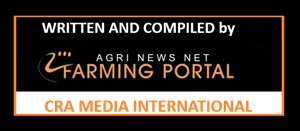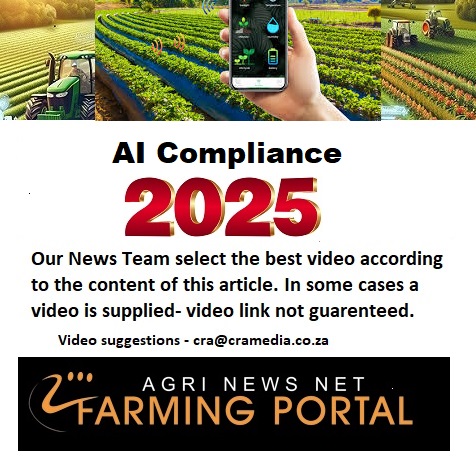Across the globe, countries like England, Germany, Australia, the USA, and South Africa are grappling with complex challenges surrounding immigration, integration, and societal cohesion. Public discourse in these nations has increasingly focused on the perceived impacts of immigration, with some citizens expressing frustration over issues like crime, economic contributions, and cultural differences. This growing discontent has sparked debates about national identity, border policies, and the balance between humanitarian values and domestic priorities, with some predicting significant social and political upheavals.
In recent years, segments of the population in these countries have voiced concerns about immigration, particularly regarding undocumented or low-skilled migrants. Critics argue that some immigrants fail to integrate or contribute economically, straining public resources and infrastructure.
In Australia, the focus has been on managing migration flows to balance economic needs with social cohesion. The Australian Bureau of Agricultural and Resource Economics and Sciences (ABARES) notes the country’s reliance on immigrant labor in sectors like agriculture, yet public sentiment often questions the value of low-skilled migration. In the USA, immigration remains a polarizing issue, with Pew Research Center data showing a 2025 decline in favorable views of the U.S. among some countries due to its immigration policies, reflecting global scrutiny. South Africa, meanwhile, faces unique challenges as a regional hub, with cross-border migration from neighboring African countries contributing to urban overcrowding and competition for resources.
Public frustration in these countries often centers on visible social issues, such as homelessness, crime, and strained public services. In South Africa, urban areas like Johannesburg have seen protests over foreign nationals living on the streets, with some locals attributing rising crime rates to undocumented migrants. However, studies, such as those by the Institute for Security Studies, suggest that crime is driven by a complex mix of poverty, unemployment, and systemic issues, not solely immigration.
Critics in Europe, particularly in Germany and the UK, argue that "political correctness" has stifled honest discussions about immigration’s challenges, leading to policies that prioritize inclusivity over enforcement. This sentiment resonates in South Africa, where public frustration over illegal immigration has led to calls for stricter border controls. In the USA, former President Donald Trump’s 2025 tariffs, including a 30% levy on South African imports, have been linked to broader geopolitical tensions, including criticisms of South Africa’s policies, which some U.S. figures claim exacerbate migration issues.
In countries like England, Germany, Australia, the USA, and South Africa, immigration remains a contentious issue, with public sentiment often polarized between those who view it as a driver of economic growth and those who see it as a strain on resources. Some citizens, frustrated by visible social challenges like crime and homelessness, argue that certain immigrants fail to contribute economically, burden food security, evade taxes, and engage in criminal activities
The immigration debate in England, Germany, Australia, the USA, and South Africa reflects deep-seated concerns about economic contributions, crime, and cultural integration. While public frustration is palpable, driven by visible issues like street homelessness and crime, the causes are multifaceted, rooted in economic inequality, weak enforcement, and global migration trends. Rather than a “great revolution,” the path forward lies in evidence-based policies that strengthen borders, promote integration, and address economic disparities, ensuring that these nations can harness the benefits of immigration while responding to citizens’ legitimate concerns.
Food security remains a critical global challenge, with Europe facing unique pressures from climate change, geopolitical conflicts, and population dynamics. In recent years, public discourse in countries like Germany, the UK, and other European nations has linked food security concerns to immigration, with some arguing that certain immigrants fail to contribute economically, strain resources, and disrupt societal cohesion by imposing external values.
Addressing food security and immigration requires evidence-based policies that balance enforcement with integration. Europe can learn from initiatives like Australia’s sustainable agriculture programs, which leverage migrant labor to boost food production, as seen in the 2025 apple export success. Enhancing integration through education, job training, and access to formal labor markets can reduce dependency and counter narratives of non-contribution. The UAE’s investments in African agriculture and logistics, including $8.5 billion in non-oil trade with South Africa in 2024, offer a model for fostering economic stability, which could reduce migration pressures by creating jobs locally.
Citizens in South Africa, Europe, Australia, and the USA are rightly demanding their rights to work, build families, and preserve cultural values. Farmers, critical to food security, need safe and supportive environments to thrive. By prioritizing local job creation, supporting family stability, and investing in agriculture through innovation and trade, governments can address these concerns. Constructive engagement, rather than revolt, offers a path to protect what belongs to citizens while fostering inclusive, resilient economies that balance local priorities with global realities.

Want to join our popular weekly viewpoint? Contact us at This email address is being protected from spambots. You need JavaScript enabled to view it.! You can make your own Viewpoint. - Our Professional civilized approach to your option is respected.

DISCLAIMER
The views and opinions expressed in this program are those of the writers and do not necessarily reflect the views or positions of any entities they represent. The information contained in this website is for general information purposes only. The information is provided by CRA and while we endeavour to keep the information up to date and correct, we make no representations or warranties of any kind, express or implied, about the completeness, accuracy, reliability, suitability or availability with respect to the website or the information, products, services, or related graphics contained on the website for any purpose. Any reliance you place on such information is therefore strictly at your own risk.

















